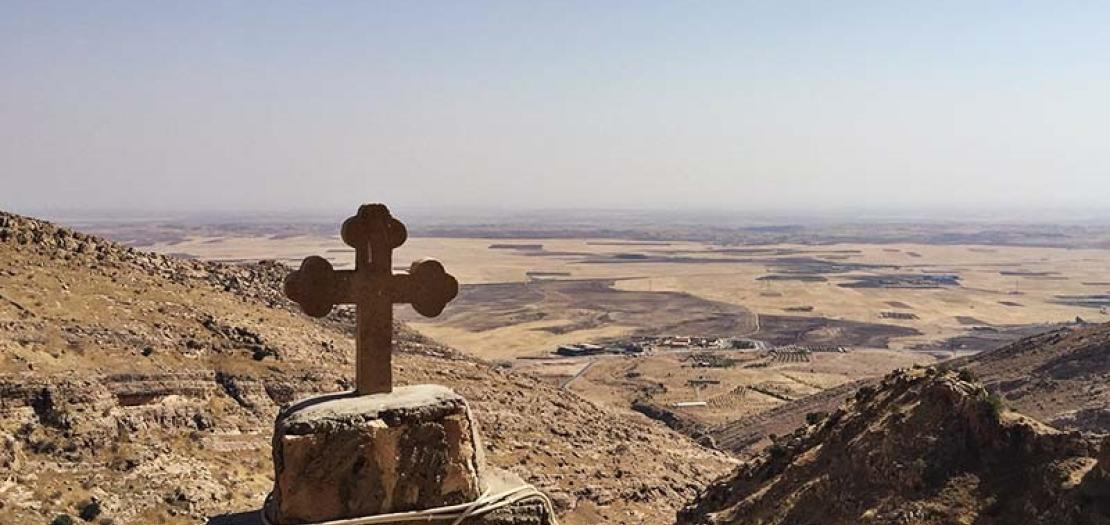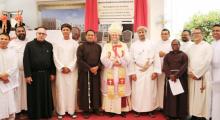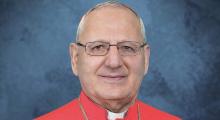Issued by the Catholic Center for Studies and Media - Jordan. Editor-in-chief Fr. Rif'at Bader - موقع أبونا abouna.org

Eleven years ago, Christians "were forced by the Islamic State, to leave Mosul and towns of Nineveh Plain, accompanied by looting and burning their properties, homes and Churches. The anxiety of Christians and the obsession of migration continue to grow, in the absence of effective measures to protect their rights, security, and services." This was recalled by the Chaldean Patriarch, Cardinal Louis Raphaël Sako, in a message on the 11th anniversary of the expulsion of Christians from the Nineveh Plains.
The Christians were awakened in the middle of the night by the jihadists and forced to immediately leave their homes and all their belongings. Entire families were thrown out of bed with loudspeakers. "People were forced to flee in their pajamas," Sister Luigina Sako, sister of the Patriarch, of the Sisters of the Warm Daughters of Mary Immaculate, told Fides the day after that horrible night. "The Christians had to leave everything behind, even their shoes, and barefoot, they were forcibly led toward Kurdistan," according to another witness. In total, about 120,000 Christians left the Nineveh Plains that night.
Among them were Christians who had fled Mosul just a few weeks earlier. The Christians' flight from Daesh militants actually began not on August 6, but in June 2014, when the so-called Islamic State succeeded in capturing the city. At the beginning of that summer, at least 1,200 Christian families lived in Mosul alone.
At the beginning of the 21st century, there were more than 100,000 Christians in Mosul alone, embedded in a social fabric where the Sunni majority coexisted peacefully with Shiites, Yazidis, and other minorities. But even before the atrocities of the so-called Islamic State, the number of Christians had begun to decline following the first US military intervention, which led to the overthrow of Saddam Hussein's regime in 2003. Since then, sectarian violence has increased.
"The towns in the Nineveh Plains are controlled by armed groups that practise extortion, harassment, intimidation, as well as the abduction of their parliament quotas and governmental job opportunities," said Patriarch Sako.
Yet, the Iraqi cardinal emphasizes, "despite these tough challenges, Christians remain steadfast in their faith: the red letter "N" on the doors of their homes remains etched in their memories, inspiring them to refuse injustice and bearing witness to Christ with fidelity, regardless of the sacrifices and hardship."
The Patriarch appeals to the government, "which represents all, to shoulder its responsibilities of protecting this indigenous Christian population and upholding their rights." For Cardinal Sako, this is not only a "humanitarian necessity" but also "a national imperative, for which preserving the freedoms and rights of Christians and other minorities must be determined not by demographic considerations only, but by just and equitable measures."
"Christians," the Chaldean Patriarch stated, "are original inhabitants of these lands, who embody a rich culture and heritage; who remain loyal to their homeland; who have played a essential role in the life of Iraqi nation in the fields of education, culture, medicine and social services."
They "can still contribute to Iraq's renaissance and progress." Therefore, Cardinal Sako concluded, "the Christian community deserves security and justice to ensure their continued presence on their land and a peaceful coexistence in tolerance, respect and harmony."







